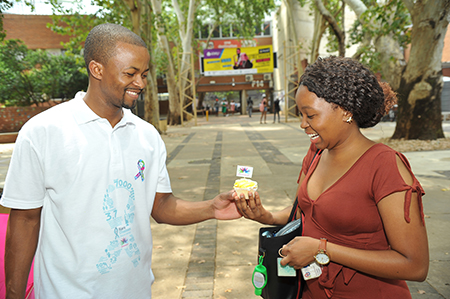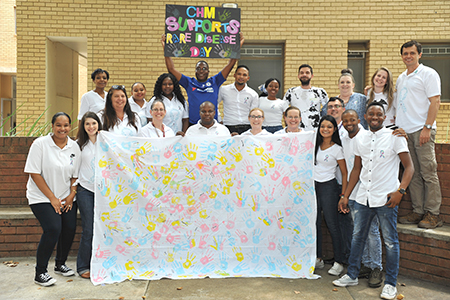Did you know that in South Africa, there are approximately three million people living with a rare disease? This means that one in every 16 people are directly affected by a rare disease.
The Centre of Human Metabolomics (CHM) at the North-West University (NWU) is well known for its expertise and many years of experience in the field of inborn errors of metabolism. The centre has been providing diagnostic services to both the public and private health sectors since the early 1970’s.
With Rare Disease Day having been observed on the last day of February 2020, the focus of the CHM was to raise awareness amongst the public about rare diseases and their impact on patients’ lives.
According to Brenda Klopper, a medical scientist at the Newborn Screening (NBS) Laboratory of the CHM, there are over 7 000 rare diseases that affect over 350 million people worldwide.
Of these rare diseases, 80% are genetic and 50% of all persons affected by rare diseases are children. She further explains that rare diseases refer to those medical conditions which affect a very small number of the population (combined it amounts to 5% of the population).
Rare diseases are characterised by a broad diversity of disorders and symptoms that vary not only from disease to disease but also from patient to patient suffering the same disease. Although there are many different causes of rare diseases, the majority are thought to be genetic, directly caused by changes in genes or chromosomes.
Rare diseases are present across the medical spectrum. Some are widely recognised by name, such as cystic fibrosis, while others are less known, such as cat eye syndrome. There are rare neurological and neuromuscular diseases, metabolic diseases, chromosomal disorders, skin diseases, bone and skeletal disorders, and rare diseases affecting the heart, blood, lungs, kidneys, and other body organs and systems.
CHM: Blazing a trail of excellence in the field of newborn screening
The CHM, in cooperation with the Technology Innovation Agency (TIA), boldly venture to meet the demands of the health sector through passion, innovation and a sound analytical services, using state-of-the-art and cutting edge approaches. One such an approach is newborn screening as a form of preventative health care.
Brenda explains that newborn screening involves testing babies in the first few days of life for selected genetic and metabolic diseases that are often not apparent at birth. These congenital diseases can progress rapidly to severe illness if not detected early and treatment started as soon as possible. Severe complications such as brain damage and health complications leading to death, can be prevented by this simple test.
Rare Disease Day 2020: tackling the challenges
According to Brenda, the theme of the 2020 edition of the observance was “Rethink Rare” and the day afforded staff and students from the CHM the opportunity to share information with the university community on rare diseases.
Some of the challenges that people with rare diseases experience may include difficulty in obtaining an accurate diagnosis, dealing with myths and stigmatisation associated with these illnesses, limited treatment options and inequitable access to treatment and care.
“During Rare Disease Day we re-affirm our commitment to preventative healthcare and research excellence,” says Brenda.
For more information regarding the Inborn Errors of Metabolosm (IEM) and Newborn Screening (NBS) programs of the CHM please visit the sites: http://newbornscreening.co.za and https://pliem.co.za. You can also consult your clinician regarding this important investment that could drastically improve the quality of life for you or your newborn baby.

Students were treated to cupcakes while being informed about the work conducted by CHM.

Handprints in support of Rare Disease Day. The team from CHM took to the NWU’s campus in Potchefstroom to raise awareness.
